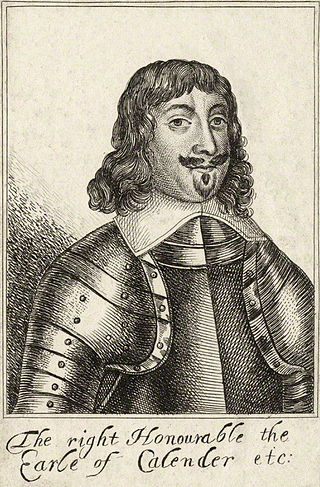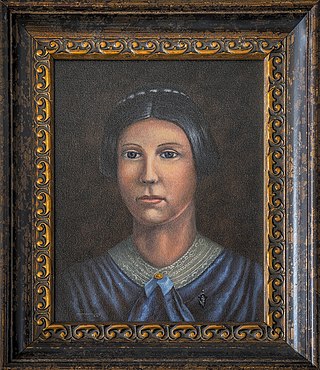
Francis Hay, 9th Earl of Erroll was a Scottish nobleman. A convert to Catholicism, he openly conspired with the king of Spain to try to unseat the Protestant Queen Elizabeth.

The morpho butterflies comprise many species of Neotropical butterfly under the genus Morpho. This genus includes more than 29 accepted species and 147 accepted subspecies, found mostly in South America, Mexico, and Central America. Morpho wingspans range from 7.5 cm (3.0 in) for M. rhodopteron to 20 cm (7.9 in) for M. hecuba, the imposing sunset morpho. The name morpho, meaning "changed" or "modified", is also an epithet. Blue morphos are severely threatened by the deforestation of tropical forests and habitat fragmentation. Humans provide a direct threat to this spectacular creature because their beauty attracts artists and collectors from all over the globe who wish to capture and display them. Aside from humans, birds like the jacamar and flycatcher are the adult butterfly’s natural predators.

The Menelaus blue morpho is one of thirty species of butterfly in the subfamily Morphinae. Its wingspan is approximately 12 cm (4.7"), and its dorsal forewings and hindwings are a bright, iridescent blue edged with black, while the ventral surfaces are brown. Its iridescent wings are an area of interest in research because of their unique microstructure. Due to its characteristic blue color, Morpho menelaus is considered valuable among collectors and was widely hunted in the 20th century.
Admiral Sir James Douglas, 1st Baronet was a Scottish naval officer and Commodore of Newfoundland.
Blue morpho may refer to several species of distinctly blue butterfly under the genus Morpho, including:

Morpho peleides, the Peleides blue morpho, common morpho or the emperor is an iridescent tropical butterfly found in Mexico, Central America, northern South America, Paraguay and Trinidad. Most authorities believe that peleides is a subspecies of Morpho helenor.

James Livingston, 1st Earl of Callendar, was a Scottish army officer who fought on the Royalist side in the Wars of the Three Kingdoms.
Methodist views on the ordination of women in the rite of holy orders are diverse.
John Boyle, 2nd Earl of Glasgow was a Scottish nobleman.

John Boyle, 3rd Earl of Glasgow was a Scottish nobleman.
William Livingstone, 6th Lord Livingston,, was a Scottish lord of Parliament.

Alexander Montgomerie, 6th Earl of Eglinton was a Scottish aristocrat and soldier, originally known as Sir Alexander Seton of Foulstruther.
Alexander Livingston, 1st Earl of Linlithgow PC was a Scottish nobleman, courtier, and politician. His wife was Helenor Hay, Countess of Linlithgow who was a Royal tutor.

Peribasis is a genus of longhorn beetles of the subfamily Lamiinae, containing the following species:

Andrew Hay, 8th Earl of Erroll was a Scottish nobleman and politician.
Danny Street was a Scottish session singer and big band singer.
Helenor Hay, Countess of Linlithgow was a Scottish courtier and writer.

Helenor Alter Draper Davisson was an ordained minister in the Methodist church in Indiana. Davisson was the first woman ordained in American Methodist Church.
Eleanor Johns or Jones was a Welsh-born courtier of Elizabeth of York and her daughter Margaret Tudor.








